Text

Uh oh its my new hyperfixation !
#my good time boys#my suicidal good time boys#verso dessendre#monoco#when luke dale was like and why do all these good games come out the year MY game releases. yeah#clair obscur: expedition 33#clair obscur fanart#fanart#lobtwo
4K notes
·
View notes
Text
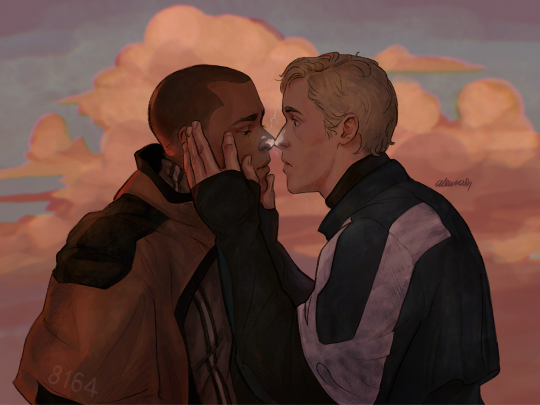
#I LOVE AND AM OBSESSED WITH THIS... SO WARM. DELIGHTFUL#markus x simon#aleurain#fanart#detroit become human fanart#detroit become human
3K notes
·
View notes
Photo




#nearly 50k notes... coming into a fandom 7 years late real Echoes Of The Roman Ruins#markus x simon#detroit become human#detroit become human fanart#fanart#rebelflet
49K notes
·
View notes
Photo




#the world would be so different if they'd let them kiss on main.#markus x simon#detroit become human#detroit become human fanart#fanart#rebelflet
29K notes
·
View notes
Text
Irregularity


When i forget Connor has a tie clip
#this is how I found out tie clips existed and what they're for. in a real way. to me#hank x connor#detroit become human#detroit become human fanart#fanart#og3-sk
1K notes
·
View notes
Text
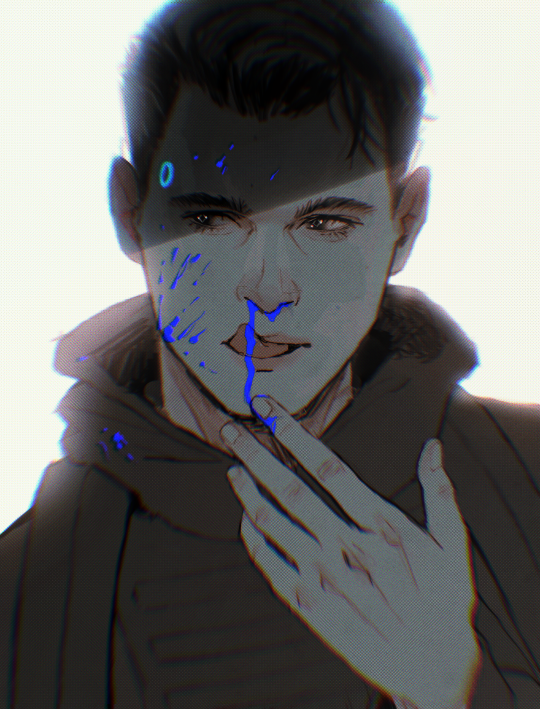
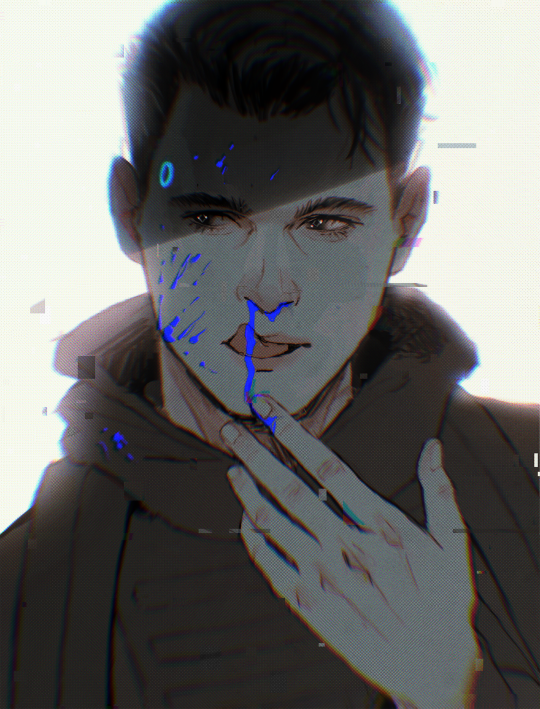
I would like to apologise, I was doing a perfectly normal drawing but then I thought wait, he’d definitely lick that 😂
get your own print here ❤️
#lick MORE robot blood freak <3#connor rk800#fanart#detroit become human#detroit become human fanart#juiche
6K notes
·
View notes
Text

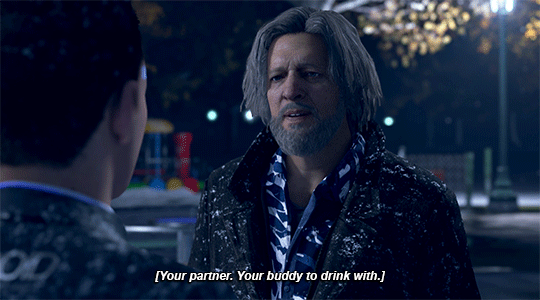
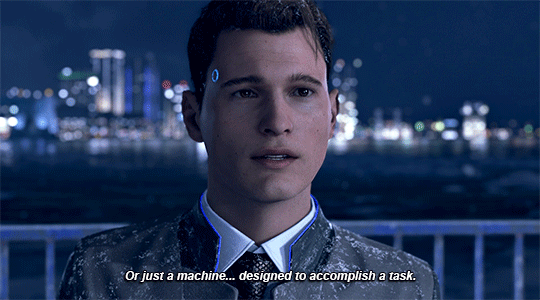
"What about you, Connor? You look human. You sound human. But what are you, really?"
#why is it that whenever anyone writes the most compelling characters of all time it's a white gay twink#detroit become human#video games#connor rk800#hank anderson#talked about age gaps at the discord party today so we're going to reblog this as a follow up I suppose#when you CUT gay romance from your video game you end up with people shipping these two instead. and that's on you!#nevertheless markus/simon persists.... even if I missed the whole goddamn simon route. we'll circle back
3K notes
·
View notes
Text
Call me 'baby' when you forget my name, I'm just glad that you came Call me 'baby', let me die on the stage, let the orchestra play
The Vampire Armand — Theatre, Etta Marcus (full width on youtube)
#this is a masterpiece sam!!!!!#such incredible work#armand#interview with the vampire#interview with the vampire fanvid#fanvid
269 notes
·
View notes
Text
Happy 24-6-01!
51K notes
·
View notes
Text
Galinda Upland/Elphaba Thropp ┃ Waiting (Alice Boman)
"Are you coming back? Are you coming back? I'm waiting..."
#love this rachel!!!! love you!!!#LOVE BIG BLOCKBUSTER YURI!!!!!!#wicked#glinda x elphaba#I'm such a fan of ariana's glinda... I'm not even an ariana fan (neutral on her) but she's just so. good. such a hard line to walk#and she walks it so well AND does confused gay yearning on top#fanvid#wicked fanvid#rachel
33 notes
·
View notes
Text
were I to create an original piece of media I would create bait so queer in order to create a fanfic environment I like. I find you guys do your best work under duress.
#it has been my lifelong dream to create a longrunning piece of media which queerbaits until the last moment#text post
51K notes
·
View notes
Text
eugene sledge // "dancing on my own"
i'm giving it my all but i'm not the girl you're taking home
#putting up rave lights to this. this is so good I can't believe I might have missed it had it not been for you talking about it#HE'S LITERALLY IN THE CORNER...#the pacific#the sledge reaction shots in this are insane are you JOKING#ok gayboy...#the pacific fanvid#fanvid#tierney#sid x sledge
229 notes
·
View notes
Text
leckiesledge // "somebody told me"
breaking my back just to know your name but heaven ain't close in a place like this
#I can't believe you put this together in two hours#truly obsessed with this concept and execution but most of all#joyed to learn that the supernatural monster 'rugaru' is in fact not a part of the lyrics to this song.#AND that others have made this mistake.#SUCH a fun vid. love you#tierney#fanvid#the pacific#the pacific fanvid#leckie x sledge
92 notes
·
View notes
Text
youtube
eugene sledge & robert leckie // "station to station"
it's too late to be hateful the European canon is here
-> WATCH ON GOOGLE DRIVE
(i've been thinking about this video for a long time, but this gifset by meg @ww2yaoi really inspired me to finish it. i also drew a lot of inspiration and themes from where to begin by ama @warriorgays. thank you both!)
some content warnings under the cut:
i wanted this video to be a really comprehensive dive into both leckie’s and sledge’s arcs, which meant including the particularly horrible parts of the war: namely the dehumanization of japanese people, the way the marines used that dehumanization to justify their actions, and how it eroded their own humanity in turn. as such, i included a lot of elements of the show that i wouldn’t normally put into a video and that i don’t often see in visual fanworks, so i wanted to content warn accordingly. this video includes (in addition to the usual canon-typical violence and discussion of ptsd):
canon-typical racism including racial slurs, desecration of corpses, animal cruelty, frontal nudity, and suicide
#honestly incredible how tierney will make anything she touches into an American Epic.#truly the levels of intellect at work here. I love to be friends with creative geniuses#the pacific#fanvid#the pacific fanvid#hbo war#tierney#leckie x sledge#BTW obvi have spoken at length on vid but did not see the thumbnail before - LOVE the thumbnail OBSESSED with the thumbnail
55 notes
·
View notes
Text
HATE IT when there’s a song that has One Line that makes me think of a specific character or pairing or whatever but the rest of the song is completely irrelevant to that situation so i dont even put it on a character playlist or anything because its not worth it but it still makes me do the metal gear solid alert noise whenever i get to That Part of the song
#needed erin to see this so I can point out there's one (1) good taylor version but specifically because of this iconic post#text post#pronouncing 'merthur' like 'mryhhderr' from that one vine
7K notes
·
View notes
Text
There are some characters where giving them therapy and cleaning them up is the fanfiction equivalent of buying antique furniture and painting it white
#just read a fic where the author had to imply the existence of an in-universe therapist equivalent to solve a mass murderer's problems.#not happening jan#the only fandom I can think of where therapy would be acceptable in fic is house md in the sense that house could make a therapist worse#I'm exaggerating but only slightly.#text post#really good post btw op. thanks for making it. one I'll refer back to for years I'm sure#FOR therapy in real life. AGAINST therapy in fanfiction#usa culture thing where lack of healthcare affordability + individualism = needing to self-insert into protagonists = therapy in fic#there are dozens of us worldwide etc
33K notes
·
View notes
Note
Would you give Expedition 33 a third ending, and, if so, how would you do it?
This is such a meaty question!!! Thank you so much for asking it I had so much fun chewing it over because there’s so much to say for such an incredible story!
[Full spoilers for the game and very long rambling below. Don't read unless you've played it!]
First of all I want to say that Clair Obscur is nearly perfect in its current form so when I make complaints they are really minor. Also the creators have very much said they deliberately created two pretty equally ‘bad’ endings and I really appreciate the tragedy they created, and the choices they made. So I appreciate the story in its current form, and I don’t know my quibbles can be fixed without fundamentally changing the narrative, which might have made it weaker!
Let me use an example to illustrate that dilemma. So we raise the question of the agency and life and betterment of the people in the painting by having Gustave as our protagonist in Act I - but if we remove the question of that agency/revolution to make the narrative ‘stronger’ (i.e. it fully becomes a narrative about the family tragedy by just having Maelle as the protagonist for Act I) I think it loses the complexity presented by having that question there, and also lessens the tragedy and shock of losing Gustave. It also makes the Maelle vs Verso ending choice much easier morally, because the characters in the painting may well be just like video game characters - not really ‘real’. Of course, just because Gustave wasn’t our POV character doesn’t mean the painting people weren’t ‘real’, but by making him so in Act I I think it really is intentional to prove that the painted people ARE real, with just as much agency as the Dessendre Family (metaphorically, because the player has the POV agency of both).
I don’t know if it’s possible, then, to change it neatly to ‘solve’ the game without weakening other parts of the narrative (i.e. if we make Gustave protagonist for Act III instead of I, we lose the Alicia parallel shock and grief of losing her brother for good).
But let me see if I can at least unpack the problems and find solutions for them.
So there’s some themes/ideas which are ambiguous or left unanswered in the game which I need to address.
Are the painted people (and Nevrons, Gestrals etc.) real/do they have as much value as real people? For the purposes of this post, I’m going to say they are. There are multiple things the game presents us with to suggest that, such as the aforementioned Gustave POV, the child-Verso-ghost dialogue at the end of the post-game where he says they believe they are, the ‘free will’ Nevrons, and the diaries of people like Julie and Painted Verso. I actually don’t think this is ambiguous compared to other things, but I thought I would get it out of the way since a lot of people dismiss the ending by saying the painted people aren’t real so killing them isn’t really a genocide. I disagree...
Continuity of consciousness; if the painted people die, might they as well be dead? That is to say, if revived they are just 'imitations' and not their true selves? I'm going to say that they aren't imitations, because Sciel and Lune seem to retain their 'consciousness' and identity for all intents and purposes when they are revived by Maelle. But it’s an interesting question.
Is the labour of Verso’s child-soul-fragment the only thing that keeps the canvas working? I don’t know if this representation of a fragment of a soul has the same agency and consciousness as a person, or if it’s more like an echo or ghost. But let’s assume, to make the argument harder, that child-Verso IS as real as a person, and deserves as many rights. I think that untangling that question is the key to any satisfying question because to be clear, either a) the child-soul-fragment is not as real as a person or, b) the Dessendres have a house-full of eternal sweatshop workers split off from their souls who are trapped forever painting their creations. If the Writers are trying to stop the Painters, maybe they’re the good guys! But speaking of labour and revolt, let’s talk about;
The collective effort to revolt against an unfair fate dictated by an upper class. The fact that the FRENCH game leans on ‘Tomorrow comes’ as a tagline, invoking Les Mis directly, then DROPS the thematic drive of the people Fighting Back against their fate, is crazy to me. The endlessly repeated ‘for those who come after’ doesn’t really make sense with the endings, either. These are lines which directly invoke the sense of the collective fighting for a better tomorrow, which is not what happens - not even for Maelle. The people of Lumiere are not fighting just for HER to have a happy ending (not that she does!) and in fact, Maelle pretty much doesn’t even acknowledge the people of Lumiere as being her primary motivator for saving the painting. It’s all about the members of the upper class - the Dessendres, the gods of the painting. Yes, you can have a tragedy (as Les Mis is), but Act III’s endings are not even about the metaphorical working class, or their sacrifice, at all. It’s not clear the game remembers any of this theme by Act III, which is very frustrating. I understand the game undergoes a focus switch to great effect for the theme of GRIEF, but it shouldn’t come at the cost of dropping other themes entirely - it lacks narrative neatness and structural integrity to me.
Most importantly to me, though, and the reason I found the ending unsatisfying, is because the game hints at a secret ‘third’ path/ending/solution - most explicitly in Alicia’s letter to Maelle:
“But perhaps you'll find another way. You who have lived amongst us. Perhaps you differ from your father and your sister, as I differ from mine. Your mother paints life. Whilst your father, death. What will you paint?”
And secondly at the end of the post-game Endless Tower section with Clea:
“It’s not selfish to make your own choices, sister. You’ve made great strides since I saw you last. Don’t go backwards. Take this. A reminder that you control your life. And if you’re not having fun… do something else. (…) I hope you had fun. Just remember… The only thing you owe them, is to live a life you enjoy.”
(There’s also the fact there’s an OST track called ‘A Life to Dream’ (as opposed to ‘A Life to Love’ and ‘A Life to Paint’). But that plays during an Alicia Reacher sequence, so I wouldn’t rely on that alone if it weren’t for the other things.)
You’ll notice Clea’s Endless Tower speech brings up a key problem with the ‘better’ ending with Verso; that Maelle has no agency. Although you could argue that she’s at least a) b begun to process her grief and b) not controlling anyone against their will, as she is in the Maelle ending, Maelle doesn’t get to make that choice in Verso’s ending. And she certainly isn’t having fun or living a life she enjoys (as she frequently reminds Renoir and Painted Verso, the painted worlds allow her freedom from the pain of her body that reality does not).
Okay, so all that to say; what would I want from a third ending?
I think the key thing missing from the two endings is agency; for Maelle, and for the people of Lumiere. In Verso’s ending, Maelle is forced into reality against her will, and it’s not actually clear whether that’s really a ‘happy reality’ that she can grow to accept at all. For all we know, her existence continues to be miserable - there is no symbolic indication or otherwise that Maelle’s future there has hope in it. (Which they easily could have added, if they wanted - they didn’t for a reason!) And for the people of Lumiere - in Verso’s ending they are killed against their will, and in Maelle’s ending, it’s kind of implied they could be or are being controlled by the whims of their god, Maelle. It doesn’t really feel like THEY saved themselves for themselves - Maelle’s justification for continuing the canvas is all about Verso, not about them.
I don’t think a third ending has to be fully ‘happy’, but I do think it has to be about Maelle processing grief on her own terms, and in a healthy way. And I think the key there is having the people of the painting help her mature in a way her family never could. Because they themselves, are more mature than her family are.
What do I mean by that? Well, let’s compare some of the characters who I think draw a nice contrast in how they handle grief.
So we have:
Sciel whose husband (and child) dies, accepts death so much she sees it as an old friend, and lives what fleeting life she has with joy. Contrast with Aline’s denial and depression, and Clea’s anger.
Lune, dealing with the death of her absent parents, nevertheless acknowledges their flaws and how they had good and bad in them - contrast with Aline, who paints idealised versions of her family to memorialise how they were with Verso.
Emma, who lets her brother go off to die understanding his sacrifice even though she doesn’t like it - contrast with Maelle of course.
Gustave, who breaks up with Sophie more or less gracefully understanding her reasons - compared to Renoir and Aline’s destructive anger at their loss and relationship breakdown. (Not saying Renoir is wrong in trying to save Aline, but he's certainly very destructive about it.)
Okay, so, I think the key would be some version of Gustave talking with Maelle and helping her process both his death and Verso’s, so she can make her own choice. I think they have to emphasise the future of Lumiere and the people in this conversation, or have Lune and Sciel do so and have more agency. Painted Verso has to die; I think it’s important specifically because it’s why Maelle and Aline keep coming back. I think I agree with the characterisation and sacrifice he made, i.e. realising that his dying was the only way Maelle would leave the Canvas.
And Maelle has to leave the canvas behind; whether or not she returns one day to dabble, maybe to see Gustave might be left impossible or ambiguous. But I don’t think any god-like being can remain in the Canvas and allow the Canvas agency; I think this was sort of proved in Maelle’s ending.
There’s one problem left, which is; what about the piece of Verso’s soul left in the Canvas? Unfortunately I don’t have a good solution to this because I’m still not sure how much ‘personhood’ it has or how the magic works; maybe someone else like Maelle leaves part of herself behind to replace Verso’s child-fragment, but maybe then it wouldn’t be ‘Verso’s’ world. Maybe the world doesn’t naturally expire immediately without that soul-fragment.
Let’s say, worse case scenario, the child, who has full personhood, MUST labour endlessly for the canvas to exist, and it’s an The Ones Who Walk Away from Omelas situation. In that case, we have to add an extra layer of complexity to the ending because of course, the fact the paintings exist at all - not just this Canvas, but all of them - is monstrous.
So in that event, it’s possible the writers or some other force - the creations of the works themselves - have to take control of their own narrative or existence, or even decide themselves to end their lives after discovering this fact. What matters is that, as in The Ones Who Walk Away from Omelas, THEY have the information and agency to do so. I think the ending could almost be improved a bit if Sciel and Lune agreed to the choice because of the child, rather than Verso and Maelle deciding for them.
Anyway, at the end of the day I think that the story just requires quite a bit more interrogation of the nature of the godhood and class dynamics of the Dessendre family versus their creations, and the lack of agency of those creations - and how they might acquire that agency. HOW that plays out could be as simple as Sciel and Lune being more a part of the choices in the endings - and having more agency in those choices - or as wrought out as an entire new Act, DLC or sequel game, in which the Writers are involved, or just the creations of the paintings revolting properly to seize control of the means of production (Maelle, this could have been you… but I understand why it wasn’t!)
One last note* which I find very funny is that the writers apparently didn’t even intend for the story to be primarily about grief, but more about an artists’ relationship with their work. Which like. Very funny to me, like I simply don’t agree that is the primary theme here. It’s obviously in there, but THAT over GRIEF? So if we ignore the beautiful tragedy of the ‘dealing with grief’ endings then, I think it’s even more cool to have the characters ‘seize control’ of the narrative from the artists. Because, once a work is out there, famously, it’s out there! Lots of things you can read into that of course, and we love that kind of moral of ‘the author is not in control anymore’ in transformative fandom, but this post is long enough already. Thanks for reading all of that, if you did!
*see replies to this post for clarification on this!
#kira for ts#clair obscur: expedition 33#clair obscur meta#really hoping that read more works for at least two reasons.#anyway I'll probably cross-post this to somewhere like reddit because I fully expect maybe max two people to read this. BUT#it was so fun nutting out my thoughts on the game and why I felt this mild irritation at the endings#really really helped me to organise my thoughts!!! so thank you so much again#fictitiouslysane
32 notes
·
View notes